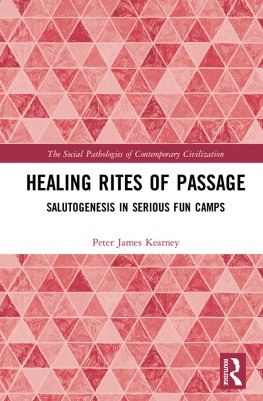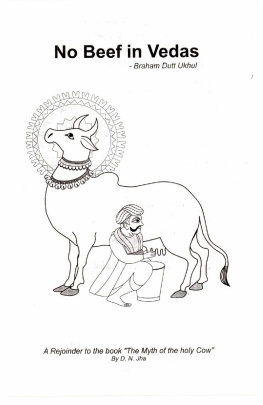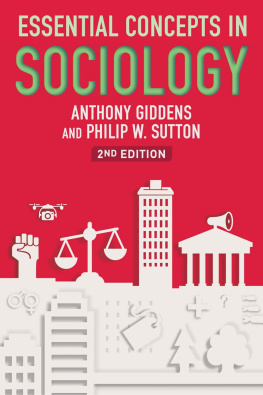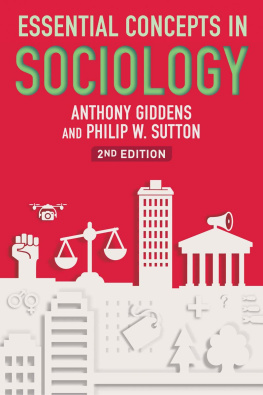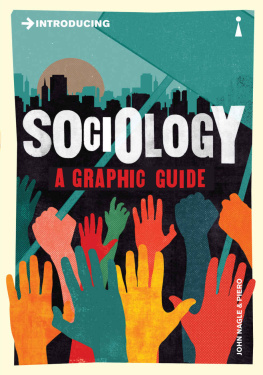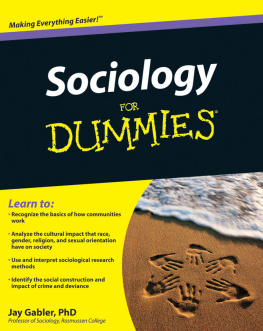Recent volumes include:
Key Concepts in Tourism and Research
David Botterill and Vincent Platenkamp
Key Concepts in Sport and Exercise
Research Methods
Michael Atkinson
Key Concepts in Media and Communications
Paul Jones and David Holmes
Key Concepts in Sport Psychology
John M.D. Kremer, Aidan Moran,
Graham Walker and Cathy Craig
Fifty Key Concepts in Gender Studies
Jane Pilcher and Imelda Whelehan
Key Concepts in Medical Sociology
Jonathan Gabe, Mike Bury and Mary Ann Elston
Key Concepts in Leisure Studies
David Harris
Key Concepts in Urban Studies
Mark Gottdiener and Leslie Budd
The SAGE Key Concepts series provides students with accessible and authoritative knowledge of the essential topics in a variety of disciplines. Cross-referenced throughout, the format encourages critical evaluation through understanding. Written by experienced and respected academics, the books are indispensable study aids and guides to comprehension.
Key Concepts in
Sociology
PETER BRAHAM
SAGE Publications Ltd
1 Olivers Yard
55 City Road
London EC1Y 1SP
SAGE Publications Inc.
2455 Teller Road
Thousand Oaks, California 91320
SAGE Publications India Pvt Ltd
B 1/I 1 Mohan Cooperative Industrial Area
Mathura Road
New Delhi 110 044
SAGE Publications Asia-Pacific Pte Ltd
3 Church Street
#1004 Samsung Hub
Singapore 049483
Editor: Chris Rojek
Editorial assistant: Martine Jonsrud
Production editor: Nicola Marshall
Copyeditor: Audrey Scriven
Proofreader: William Baginsky
Indexer: Author
Marketing manager: Michael Ainsley
Cover design: Wendy Scott
Typeset by: C&M Digitals (P) Ltd, Chennai, India
Printed in India at Replika Press Pvt Ltd
Peter Braham 2013
First published 2013
Apart from any fair dealing for the purposes of research or private study, or criticism or review, as permitted under the Copyright, Designs and Patents Act, 1988, this publication may be reproduced, stored or transmitted in any form, or by any means, only with the prior permission in writing of the publishers, or in the case of reprographic reproduction, in accordance with the terms of licences issued by the Copyright Licensing Agency. Enquiries concerning reproduction outside those terms should be sent to the publishers.
Library of Congress Control Number: 2012939983
British Library Cataloguing in Publication data
A catalogue record for this book is available from the British Library
ISBN 9781849203043
ISBN 9781849203050 (pbk)
table of contents
Peter Braham
about the author

Peter Braham lectured in sociology at the Open University for many years. He made major contributions to a number of Open University courses: Patterns of Inequality; Ethnic Minorities and Community relations; Mass Communication and Society; An Introduction to Sociology; Race, Education and Society; Understanding Modern Societies; Implementing New Technologies; An Introduction to Information Technology; Culture, Media and Identities; Studying Family and Community History: 19th and 20th Centuries; and Sociology and Society. He co-edited Discrimination and Disadvantage in Employment: the Experience of Black Workers (1981); Media, Knowledge and Power (1986); Racism and Antiracism (1992); Political and Economic Forms of Modernity (1992); Social Differences and Divisions (2002); Dictionary of Race, Ethnicity and Culture (2003). His main research interests have been in migration and settlement, child immigration and family reunification, and he has been the UK partner on several international research projects in these areas.
acknowledgements
I would like to express my thanks to: Professor Chris Rojek for commissioning this book and for his encouragement throughout its production; Martine Jonsrud, Nicola Marshall and Jai Seaman at Sage for their tremendous efficiency and support; the anonymous referee appointed by Sage for constructive criticisms of an earlier draft; Audrey Scriven, whose meticulous copy-editing improved the clarity of the text; William Baginsky, whose expert proofreading enabled a number of errors to be corrected; and not least, my wife Susan for her careful reading of the manuscript and general forbearance as I worked on the book.
introduction
The Shorter Oxford English Dictionary defines sociology as the science or study of the origin, history, and constitution of society. The word sociology is an amalgam of the Latin socius, meaning companion (or associate), and the Greek logus or ology, meaning study or study of and so a literal meaning of sociology can be rendered as the study of companionship. The first public use of the word sociology appeared in Auguste Comtes Positive Philosophy (18301842), which held that positivism provided the scientific means of illuminating the laws of social change in society. It has often been said that the chief reason for the emergence of sociology was an attempt to comprehend the huge social upheavals produced by the transition from traditional, rural society to modern, industrial society. The work of the classical sociologists, such as mile Durkheim, Max Weber, Georg Simmel and Ferdinand Tnnies, in the last years of the nineteenth century and the beginning of the twentieth century was largely concerned with exploring the processes that created this modern world.
It took a considerable time for sociology to be accepted as a valid subject in academia. For example, a year after Durkheim was appointed to a Lectureship in Social Science and Education at the University of Bordeaux in 1887 he established LAnne Sociologique the first social science journal in France. However, when he was appointed to a Professorship at the Sorbonne in Paris in 1906, his title was Professor in the Science of Education though in 1913 this post was retitled as Professor in the Science of Education and Sociology.
The study of sociology was the newest (or last) of the social sciences to establish itself in the English-speaking world. In the USA, though sociology was first taught under that name at the University of Kansas in 1890 and the first academic department of sociology was established in the University of Chicago in 1892, the great expansion of sociology occurred in the USA in the mid-twentieth century. The American Sociological Association (ASA) has described the discipline of sociology in the following way:
Since all human behavior is social, the subject matter of sociology ranges from the intimate family to the hostile mob; from organized crime to religious cults; from the divisions of race, gender and social class to the shared beliefs of a common culture; and from the sociology of work to the sociology of sports. Sociology provides many distinctive perspectives on the world, generating new ideas and critiquing the old. The field also offers a range of research techniques that can be applied to virtually any aspect of social life: street crime and delinquency, corporate downsizing, how people express emotions, welfare or education reform, how families differ and flourish, or problems of peace and war. (www.asanet.org/)





